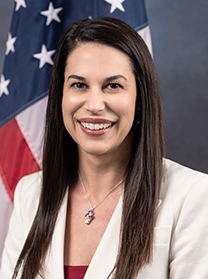- Home
- About
- Insurance
- Quote
- Dental/Health
- Service
- Notary
- News
- Referral Partners
- Agent Resources
Interested in Condominium?
Get automatic alerts for this topic.

[ad_1]
The Florida Office of Insurance Regulation next week will hold hearings on two property insurers’ requests for 54% average rate increases, one of which has already affected more than 105,000 condominium unit owners.
Castle Key Indemnity Co., one of Allstate Insurance Company’s Florida-focused units, last March registered a use-and-file average rate hike of 53.5% for HO-6 condominium unit owners policies. The increase took effect last May, affecting as many as 105,247 policyholders, according to data from Florida OIR.
“The overall rate level change has been achieved through revision of the hurricane and non-hurricane base rates and hurricane and non-hurricane Coverage A factors,” the filing cover letter notes.
Under the use-and-file approach, insurers can raise rates for months before regulators have a chance to review. If OIR actuaries determine that the increase was unwarranted, it can demand that the carrier refund some or all of it. Because of that, insurers often raise premiums to a lesser degree than they might feel is actuarily justified, said Paul Handerhan, a lobbyist, consultant and president of the Federal Association for Insurance Reform, based in Florida.
A public hearing has been scheduled for Feb. 21 at 2 p.m. Eastern time on the Castle Key rate. Registration for the online virtual meeting is available here. Stakeholders can also tune in via telephone: 866-901-6455, with access code 202-228-101. Written comments will be accepted through March 6, the OIR said.
 Amica Mutual Insurance Co. also filed for a 54.1% average rate increase for dwelling fire policies covering about 500 insureds, effective in July.
Amica Mutual Insurance Co. also filed for a 54.1% average rate increase for dwelling fire policies covering about 500 insureds, effective in July.
Castle Key’s filing follows a similar 2022 rate increase request and a September 2023 increase of almost 15% for homeowners policies. The Allstate company announced early last year that it was non-renewing more than 30,000 Florida condominium policies.
Florida insurance industry advocates argue that the rate requests show that many more factors besides claims litigation are continuing to drive costs upward. But with less than a month remaining in the 2024 Florida legislative session, time is running out on big measures that they say could help reduce premiums on insurance and reinsurance.
“Litigation filings are down, so that’s not driving the rate anymore,” Handerhan said.
Other contributors now include inflation, higher construction materials and labor costs, rapidly escalating property values in much of the state, an increase in convective storms and storm claims, and reinsurance rates that soared over the last 36 months. But a plan for the state or the Florida Hurricane Catastrophe Fund to provide a new, low-cost reinsurance program never got off the ground in the legislative session that began Jan. 9.

“I think the Legislature did a tremendous amount of property insurance reform over the last 24 months,” Handerhan said. “So I think they want to continue to see how things develop.”
Gov. Ron DeSantis in January proposed a state budget that would help consumers to some degree. His plan would waive premium taxes on homes up to $750,000 in value for one year and permanently on flood insurance policies. It also would pause the 1% assessment on policies that now goes to the Florida Insurance Guaranty Association to cover claims left behind by insolvent insurance carriers.
But those changes aren’t guaranteed this year, former Deputy Insurance Commissioner Lisa Miller said in a newsletter this week. And some have questioned the impact that the reduced charges may have on policyholders. Others have noted that those costs are pass-throughs and halting them would do little to help insurers.
Some brokers and others who represent Florida condominium associations are hoping lawmakers can tackle at least one major insurance change in the waning days of the 60-day session. House Bill 625 would have allowed the state-backed Citizens Property Insurance Corp. to write policies for condo associations whose buildings include short-term rentals, something that’s now barred by law. Hundreds of condominiums around the state have recently seen their coverage limits sharply reduced and premiums doubled or tripled, especially after Hurricane Ian hit the state in late 2022.
That bill appears to be dead, but a few lawmakers are working to include the key language in HB 1503, sponsored by Rep. Tiffany Esposito, R-Fort Myers; or SB 1716, by Sen. Jim Boyd, R-Bradenton, lobbyists said this week.

The recent rate request by Castle Key Indemnity highlights the dire need for expanding Citizens’ coverage to include more condos, said Mike Clarkson, managing director of Hilb Group of Florida, the insurance brokerage for some 1,200 condo associations. Others agreed.
“Something needs to be done,” said Matt Mercier, national director for community associations for CBIZ, an insurance advisory firm. “When you’ve got condo 9,000 buildings that can’t get coverage, that’s problematic.”
One active storm season could leave thousands of residents with no way to repair or rebuild, Mercier added.
Topics
Florida
Pricing Trends
Get automatic alerts for this topic.
[ad_2]
Source link
Comment (0)